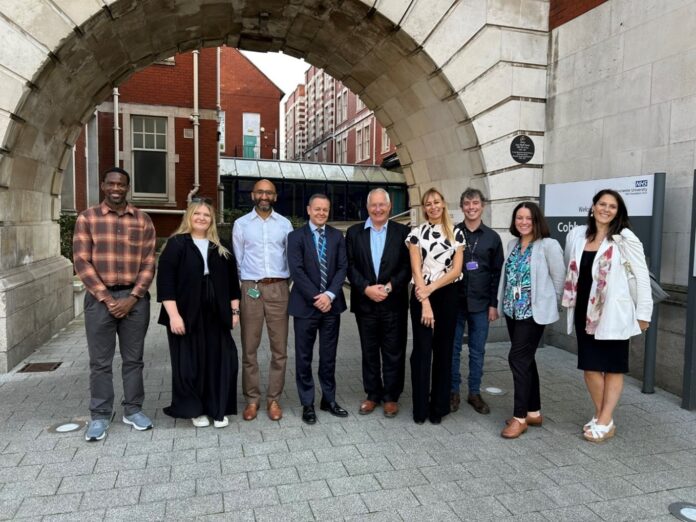In a UK first, researchers in Manchester are successfully identifying patients in the early, curable stages of a common liver cancer using a new, innovative test.
The study team at Manchester University NHS Foundation Trust (MFT) and The University of Manchester (UoM) implemented the new technology across MFT hospitals in December 2023, which provides specialist liver care to the Greater Manchester region. The technology aims to improve early detection of hepatocellular carcinoma (HCC) – the most common cancer affecting the liver and the third most common cause of cancer death.
Developed by Roche Diagnostics, the pioneering test, known as Elecsys®GAAD, combines blood tests with gender and age, which can increase the detection rate of HCC at an early, curable stage. This is being used alongside routine surveillance tests to see how it can benefit patients, so they have the best chance of surviving this type of cancer.
One of the risks for developing HCC is a pre-existing liver disease and scarring of the liver, known as cirrhosis. Approximately 3,000 people are found to have HCC in the UK every year. Less than 1,000 are identified at a stage when they can have curative treatment, leaving over 2,000 people per year with a cancer that cannot be cured.
More than 600 patients with cirrhosis have been tested using Elecsys®GAAD within clinics at Manchester Royal Infirmary, Wythenshawe Hospital and North Manchester General Hospital, all part of MFT, and four patients have been detected with early-stage liver cancer at a treatable stage, which would not have been found without the new technology.
Gerry’s story
Father of three, Gerry, 67 was diagnosed with hemochromatosis approximately 15 years ago, a hereditary condition where the body stores too much iron, which has led to scarring on his liver, cirrhosis.
Whilst attending his routine screening appointment at Wythenshawe Hospital, Gerry joined the research trial using the Elecsys®GAAD technology, which detected the early stages of liver cancer.
Following a number of CT scans at Manchester Royal Infirmary, it was confirmed that there is a small tumour on the upper part of his liver, which he has now had removed and remains cancer free.
Gerry said: “I was shocked to find out that I had liver cancer, but also relieved that it had been found early and it hadn’t spread any further. I didn’t have any symptoms that would make me think that there was anything wrong, so I am grateful that the cancer has been caught early, where a number of treatment options are available to me.
“It isn’t until you’re in this position, that you truly realise how cancer can affect anyone, and detecting it early can save your life. I would encourage others to take part in this research trial, if given the opportunity, as this new technology will save lives. I am grateful to be in a position where curative treatment is available and I am now cancer free.”







